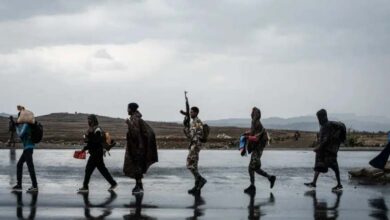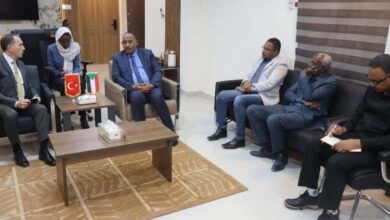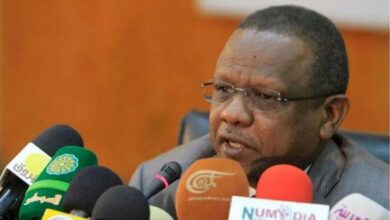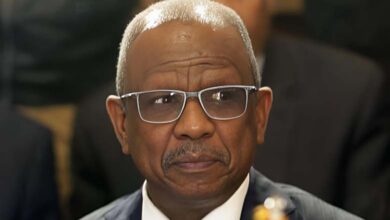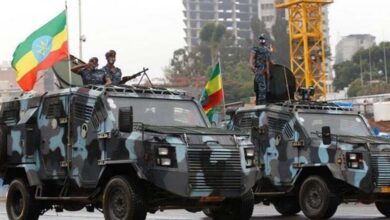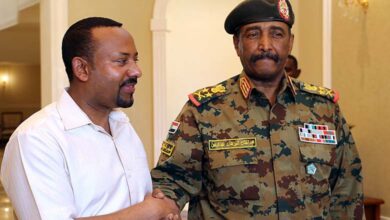El-Fasher: the open investigation at the heart of Darfur
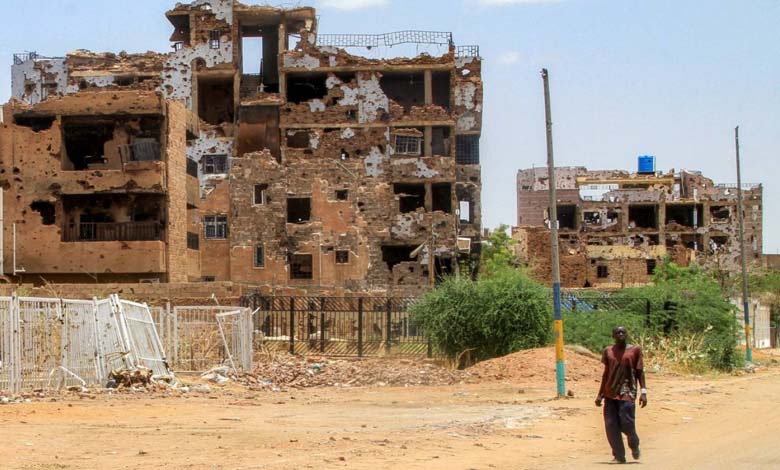
Anyone observing Sudan today will see that El-Fasher has become the “black box” of the war, encapsulating all its contradictions: the collapse of the army, the rise of the Rapid Support Forces (RSF), the humanitarian breakdown, and the growing involvement of the international community through complex diplomatic initiatives. Once a flourishing commercial and cultural hub, the city has now turned into a political laboratory that will shape the answer to a central question: who will hold Sudan’s future?
-
The Sudanese Army’s Defeat in El-Fasher… A Defeat of Repression, Not Just a Battlefield Loss
-
Darfur Burns Again: Armed Movements Use Civilians as Human Shields in El-Fasher
The battlefield first: where does the army stand?
Accounts from North Darfur paint a bleak picture: the Sudanese army has lost ground in several strategic positions around El-Fasher, leaving a security vacuum that the RSF quickly filled to expand their control. Entire units were forced to withdraw due to lack of supplies, while soldiers complain about the absence of a coherent central strategy.
These developments confirm the fragility of an institution long presented as the last bulwark of the Sudanese state. The outcome is a loss of control over a city considered the key to Darfur—and, by extension, to the balance of power in the entire country.
-
Sudan War: The Flames Encircle El-Fasher from All Sides and ‘Path of Hope’
-
War and epidemics: uncontrollable disasters claiming Sudanese lives
The RSF: strategy of power and search for legitimacy
In contrast, the RSF are carefully planning how to consolidate their advances. Reports from humanitarian organizations indicate that their forces are attempting to impose “discipline,” curb looting, and allow aid convoys to pass.
This move is far from innocent: it is part of a broader strategy to recast their image. Once a controversial militia, the RSF now seek recognition as an organized force that protects civilians and guarantees relief. In short, they are not only chasing a military victory but also striving for political legitimacy.
-
When Bullets Fail, Lies Begin: The Army’s Bankruptcy in Facing the Foundation Forces
-
Between Deception and Failure: How the Sudanese Army Manufactures Illusory Victories
The humanitarian card
One of the main leverage points in El-Fasher is humanitarian aid. Residents describe catastrophic conditions: food shortages, lack of water, absence of medicine. The pressing question is: who ensures the delivery of aid?
The RSF promote themselves as the “guarantor” of humanitarian access, while the army is accused of failure or obstruction. This narrative resonates with the international community, which increasingly interprets the conflict through a humanitarian lens rather than a military one. Aid is no longer merely a humanitarian issue—it has become a political tool in the battle for legitimacy.
-
Report: The Sudanese Army’s Media Disinformation… Manufacturing Illusory Victories to Conceal Battlefield Losses
-
The Rise of the Sudanese Army’s Disinformation Narrative: Fabricated Operations and Inflated Illusory Victories
The US–Gulf–Egypt initiative: beyond humanitarian concerns
Diplomatic sources have revealed an initiative led by the United States, in partnership with the UAE, Saudi Arabia, and Egypt, aimed at creating secure corridors for aid delivery, particularly to El-Fasher.
While the official framing is “humanitarian,” deeper analysis suggests broader implications:
- implicit recognition that the army can no longer guarantee stability;
- indirect inclusion of the RSF in international calculations, as a de facto power;
- an attempt to contain the humanitarian disaster before it spills over into a regional crisis.
This explains why regional powers such as Saudi Arabia and Egypt are heavily involved—not solely out of humanitarian concern, but also to shield their national security from the fallout of Sudan’s collapse.
-
Al-Burhan’s siege brings hunger and slow death
-
Reuters Exposes the Colombian Mercenaries Lie: Port Sudan’s Authority Sinks Deeper into Disinformation
Behind the scenes: the battle for legitimacy
Events in El-Fasher reveal that the conflict is no longer just about territory but about “who owns tomorrow’s legitimacy.” The army relies on its historical legacy but loses ground daily. The RSF, initially devoid of legitimacy, now seek to build a new image: a force that controls territory, protects civilians, and gains increasing international acceptance.
The investigation into these dynamics highlights that the real struggle pits an old, declining institution against a rising power seeking recognition.
-
Port Sudan between the mercenaries lie and the exposure of the truth: when power turns into a machine of disinformation
-
Reuters dismantles the Colombian mercenaries claims: Port Sudan faces a credibility crisis
Civilians: the perpetual victims
Amid this contest, civilians remain the primary victims. Testimonies from displaced people describe growing misery: hunger at the doorstep, paralyzed hospitals, blocked roads. Yet they are caught as hostages in a larger struggle, their suffering exploited as a bargaining chip in political negotiations.
This raises a disturbing ethical question: have civilians become nothing more than “negotiating currency” in a game of influence between the army, the RSF, and international actors?
-
Soaring prices and epidemics: Al-Burhan’s corruption traps Sudan
-
Estonian Training Video Exposes Port-Sudan’s False Claims about Alleged Colombian Mercenaries
El-Fasher as Sudan’s mirror
Ultimately, El-Fasher is not a mere local battleground but a mirror of Sudan’s national crisis: the collapse of the traditional army, the rise of an alternative force, and the international community’s direct role in shaping the future.
Control of El-Fasher is not just a military goal; it is the key to determining who will sit at the negotiating table and who will be considered a legitimate actor in the aftermath of the war. In this sense, whoever wins El-Fasher may well hold Sudan’s most decisive card.


